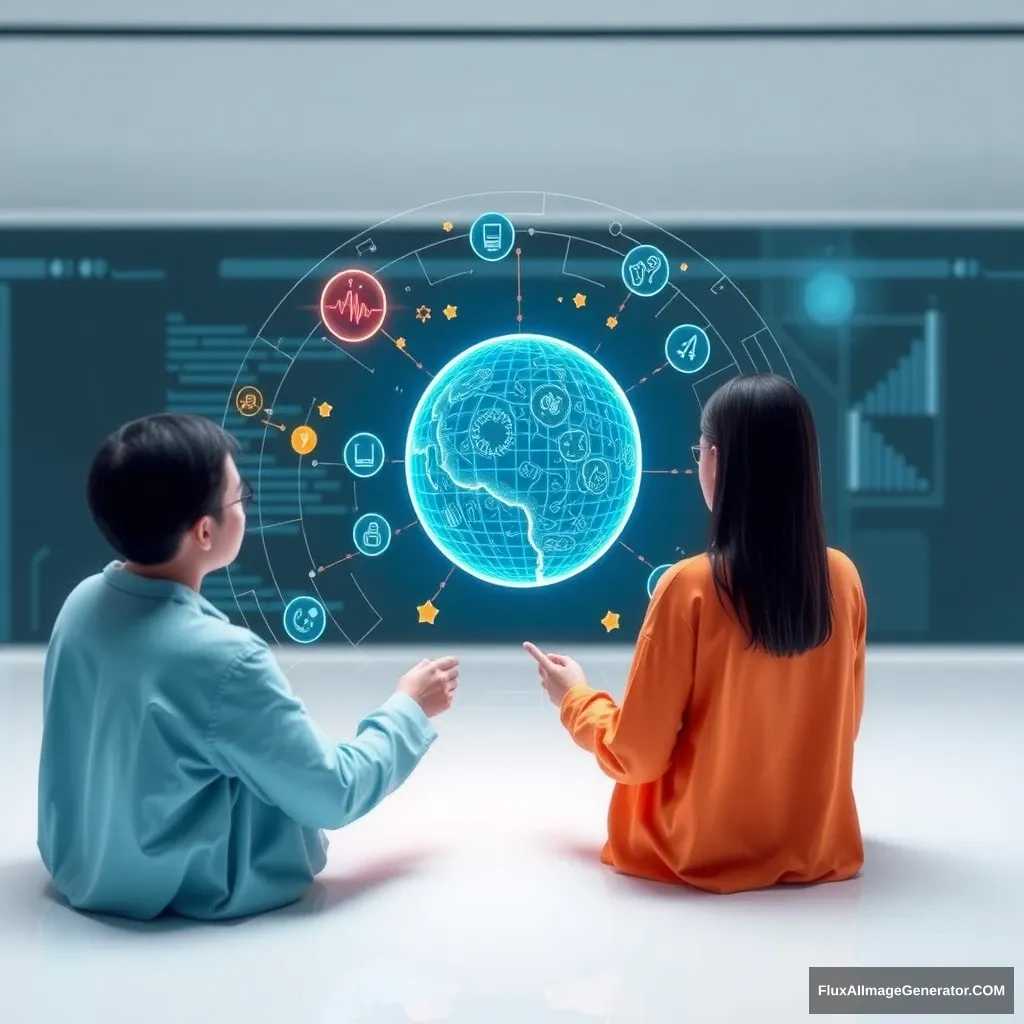Image IA créée par Flux AI Image Generator

Invitation
The fourth generation of medical education, which has emerged alongside the new technological revolution, has led to changes in the paradigm and philosophy of medical education. This article reviews the development process of the three generations of medical education reforms, analyzes the connotation of the fourth generation of medical education reform, and highlights its characteristics centered on health, as well as its cross-disciplinary, integrated, and artificial intelligence-enabled nature. It suggests that in the face of the fourth generation of medical education reform, medical education practitioners should actively respond to changes by reconstructing the mechanisms and models of medical education, adjusting the curriculum system, updating course content, and improving evaluation methods. The article recommends that professionals in the field of medical education actively embrace and accept the fourth generation of medical education in both philosophy and action, thereby establishing a new paradigm of medical education in the context of the new technological revolution and cultivating high-quality talents capable of fulfilling the Healthy China strategy.
Analyse d'image
Analyse émotionnelle
Scénarios d'application
AI-Enhanced Curriculum Design
Description: Implementation of AI in medical curriculum.
Utilisation potentielle: Incorporate artificial intelligence tools into the medical education curriculum to better equip students with technological skills.
Interdisciplinary Collaboration
Description: Developing cross-disciplinary research projects.
Utilisation potentielle: Facilitate projects that integrate medical education with technology, ethics, and social sciences.
Innovative Evaluation Methods
Description: Updating assessment techniques for students.
Utilisation potentielle: Introduce new assessment strategies that measure competency in a dynamic and integrated manner.
Health-Centric Curriculum Revision
Description: Revising course content to include health-focused practices.
Utilisation potentielle: Modify existing course content to prioritize health outcomes and patient-centered care.
Faculty Development Programs
Description: Training instructors on new educational technologies.
Utilisation potentielle: Provide training for educators to effectively utilize new technologies and teaching methods in medical education.
Analyse technique
Évaluation de la qualité: The generation quality is high, with clear articulation of concepts and informative content.
- Comprehensive review of medical education generations
- Connection of education reforms to contemporary healthcare needs
- Focus on integrated and AI-enabled education
- More concrete examples of implementation
- Further exploration of challenges faced by educators
- Inclusion of case studies on successful reforms